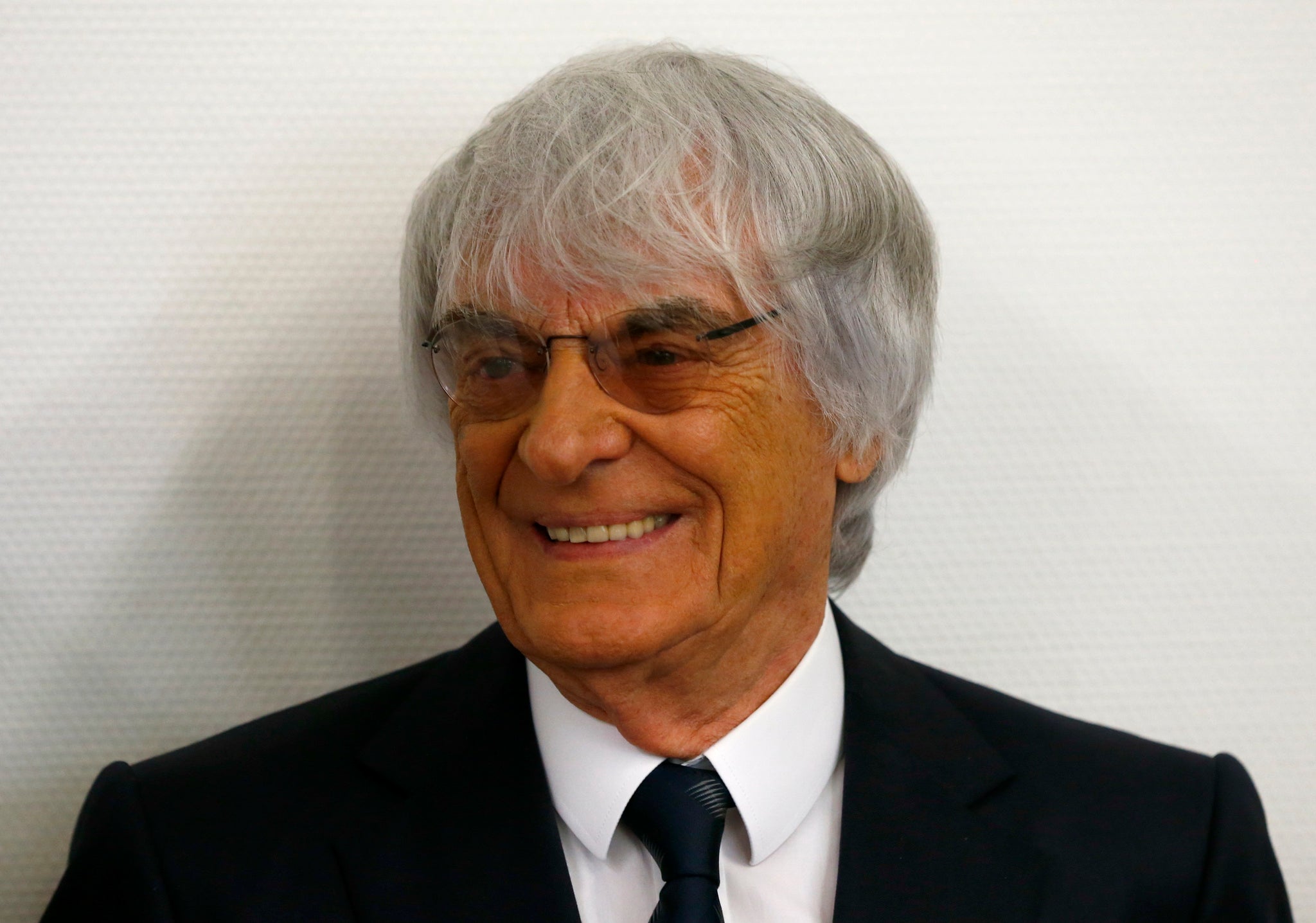So $100m is the price of justice for Bernie Ecclestone – we could learn from him
The case leads us into an interesting moral maze


Is it in poor taste to suggest that, if only the Yorkshire Ripper had been loaded, then he, like Bernie Ecclestone, might have been able to walk away from the allegations made against him? That is, in return for what looks suspiciously like a “bribe”, albeit one so large that that grubby little word hardly seems adequate for this offer of payment.
Obviously it is a bit of an inappropriate comparison, Ecclestone and the Ripper. But I had not previously come across a judicial system so quirky as the German one, so it got me thinking.
In case you missed it, a Munich court has agreed to set aside the bribery trial of Bernie Ecclestone upon payment of $100m dollars. That is a sum of money that deserves respect, as well as more than a second glance from Lady Justice. One hundred million dollars is the price of German justice these days. For a man worth with 40 times that in the bank, it was a racing bargain. It is a rather grand version of the option many at the other end of the financial spectrum to Mr Ecclestone are offered. Charged with disorderly behaviour in a pub cark, you might pay a fine of £100 up front, or defend yourself in court at the risk of 14 days in custody.
So the Ecclestone cash goes into the coffers of the German state, presumably to pay for some more of that excellent technical training they undertake in the federal republic, or to pay the wages of humble German public servants, or fund a modest advertising campaign promoting Germany’s attractions as a tourist destination, something you never hear much about.
In that way the recycling of cash from an – alleged – sinner towards a greater public good is not so very different to the way the mediaeval Catholic Church used to grant “indulgences” – divine forgiveness for various sins – in return for a sliding scale of fees. So, in today’s terms, it might be 50 quid for coveting your neighbour’s missus, a grand for stealing oxen and six figures, surely, for a full-on swim-with-the-fishes whacking. They’d never have dreamed of asking for $100m just because you might have ripped someone off. The cash went towards looking after the lifestyles of the monks, who varied in their commitment to an ascetic lifestyle.
Then again, is Ecclestone’s administrative payment really so different from all those other powerful people who, in effect, buy justice? There have been some very celebrated cases over the years where a surprising result has emerged after substantial and expensive legal resources have been chucked at a case.
Because we are a responsible newspaper we would not wish to challenge the authority of the courts by mentioning anyone in particular, but I am sure you can think of a few. The Eccelstone case is certainly different, as the trial was called off before it got to a verdict, and the course of justice diverted if not perverted, but there is something in this. Just as the rich can buy the best cognac, the best cars, the best education for their offspring, so too can they buy the best legal advice. Occasionally it avails them little; mostly it is money well spent.
So the Ecclestone case leads us into a more interesting moral maze. Are there things that should be properly placed away from market forces? The controversy about the Australian couple who paid for a surrogate mother to carry “their” twins in Thailand – it would not have been legal in Australia - reminds us that there are plenty such things already. In some countries you can sell someone a kidney; in others a child, almost openly, but in most jurisdictions such transactions are frowned upon. And money still can’t buy you love, as the Beatles taught us, even if you can buy your council house.
Apart from that, you could well argue that no parent should be able to buy their child an unfair advantage in life, which would mean banning private education. I like the sound of that, but see the impractical side. Much the same goes for private health care. Here though I must admit hypocrisy; I have considered going private, because of the waiting list. I had to wrestle with my conscience (a contest I usually win, by the way). In the event I avoided paying for treatment, but the experience taught me how tricky prohibiting private medicine would be.
In those important respects, then, we already have breached the principle that there are some things too precious to be bought; and a trade in “public goods” is the logical conclusion of a world where justice itself can be purchased. “Buying votes” is a shady, undercover activity; well, why not put let people put their polling cards on eBay? If you really can’t be bothered with elections, why not let someone who cares use your vote? Or even one of the candidates? Those votes registered to homes in in marginal seats would command vast sums.
The Army used to sell officer commissions; it might have to start doing it again to pay for its operations. Wealthy felons could pay others to serve their sentences for them. Not for the first time, Bernie Ecclestone has given us all pause for thought.
READ NEXT:
Join our commenting forum
Join thought-provoking conversations, follow other Independent readers and see their replies
Comments
Bookmark popover
Removed from bookmarks